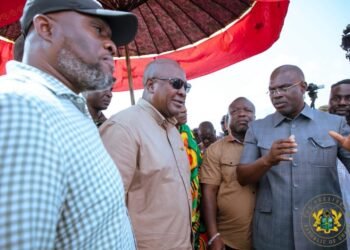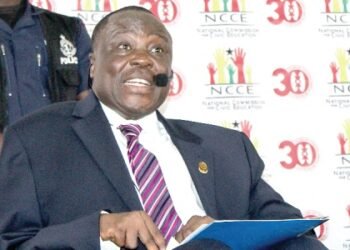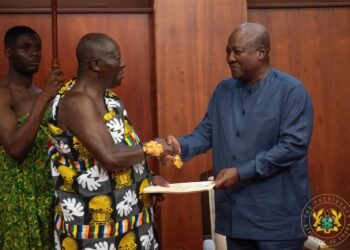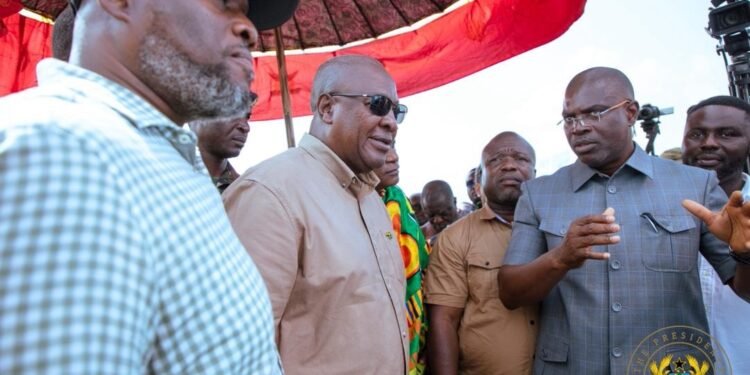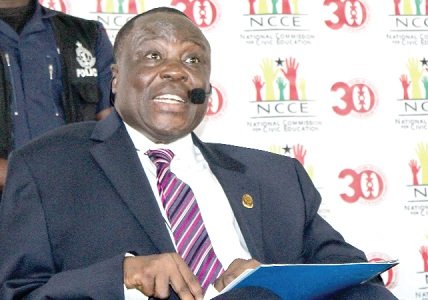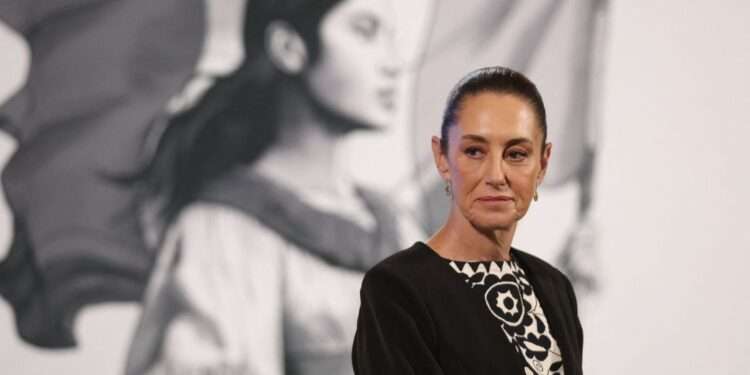Public relations officer for the ministry of education, Kwasi Kwarteng, has expressed government’s commitment to ensuring the increase of students’ enrolment in STEM education.
According to him, this is the reason for the ministry’s efforts in educating the public on the need to boost interest in Science, Technology, Engineering and Mathematic for students. He explained that there’s a strong correlation between education and the need to ensure the socio-economic transformation and national development of the country.
“Our aim particularly within this enrolment period, where we will be placing students within the SHS, is to move it consciously from around 12% to 25%…”
Kwasi Kwarteng
Mr Kwarteng stated that considering the enrolment of science to other humanities programs at the SHS level, it’s hovers around 12% as compared to 88% in humanities. In light of this, he explained that the ministry of education as part of efforts to reposition and realign Ghana’s education is embarking on the massive STEM campaign to create a level of awareness that within the 21st century where government is training students to be critical thinkers, assertive and problem-solvers, the deal and big order of the day has to be STEM.
“If you go to places like the Northern region, it’s 4%, so it’s not only sad but terrible… So, against this background, the ministry of education is taking this bold initiative so that we are able to close the gap and not necessarily closing the gap, but closing the gap so that at the end of the day you’ll have education producing the right kind of quality education inuring to the benefit of the people, so that that relevance component is [met].”
Kwasi Kwarteng
Prioritizing STEM education in Ghana
Furthermore, Mr Kwarteng highlighted that as a country, there is the need to move from the era where education focused primarily on reading and writing, into the era where students can use education to ensure socio-economic transformation. He stated that this is the human capital and resources that government is really preparing for to attain the 21st century needs.
“If you listen to the minister for education, Dr Osei Adutwum, he has always said that education largely is centered on three key variables – access, quality and relevance. Relevance in the sense that there has to be impact on education and also socio-economic transformation…”
Kwasi Kwarteng
Commenting on the transition from textbooks to more practical learning experiences for students, the PRO for the education ministry revealed that government is doing its best to ensure students receive holistic learning experiences. He explained that with regards to the curriculum, pupils at the basic level from primary 1 to 6, already have in operation the standard based curriculum.
“Largely, the gradual process of phasing out the old curriculum even up to the JHS level is in effect.”
Kwasi Kwarteng
In terms of preparation, Mr Kwarteng noted that although there are challenges with logistics and distribution of textbooks to schools across the country, the ministry is doing its best to address the issues. He indicated that with the introduction of the curriculum, the ministry saw the need for it to tally with the provision of books, of which the ministry was to provide teachers and learners with resource packs, whiles processes in terms of procurement, publishing processes, quality assurance mechanisms are put in place to print the books.
“As I speak, within the standard based curriculum, books have been sent to the schools… We engaged publishers and for the foundational subjects – English, mathematics, science and creative arts, publishers have already printed the books and distributions have gone. Of course, other subjects like French, Twi, and OWOP, we are also engaging publishers to distribute…”
Kwasi Kwarteng
READ ALSO: Lands Minister Has Not Approved Any Contract On Ewoyaa Lithium Project- Minerals Commission




